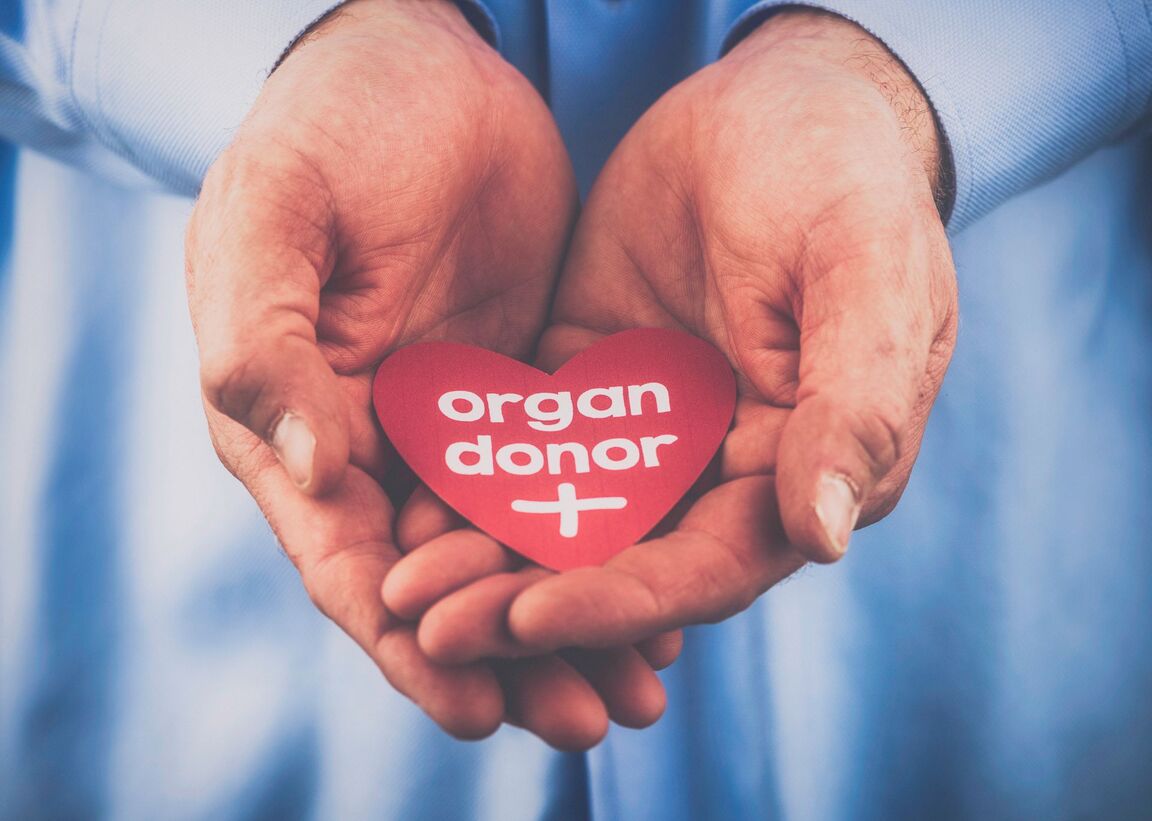The topic of being an organ donor captures imaginations on countless TV shows, in which one person’s fate ends up saving the lives of strangers. There is some truth to these stories. A single donor can help or save the lives of multiple people – up to 25, according to the Illinois Secretary of State. Tissue donations of non-organs such as skin, tendons, corneas and heart valves are also life savers.
But in reality, getting enough people to register to be on a donor registry list is still a challenge.
Your Driver’s License and Organ Donation
Have you signed up to be an organ donor? You’ll know if your driver’s license has an indicator on it – such as the word “donor” stamped in the shape of the state of Illinois. But a combination of fear, misconceptions and simple delays in acting are keeping the numbers lower than they need to be.
Afraid to Register as an Organ Donor?
Registering as an organ donor doesn’t necessarily mean you will become one. Numerous other factors would need to come together. If a person loses their life, that doesn’t mean their organs are automatically accepted. Whether an organ is donated may depend on blood type, urgency, the wait time and other factors.
Most important to those afraid to register, doctors will try just as hard to save your life – if you are in a car accident, for example – as they do with everyone else. Read about how new technology is making cars safer than ever in our recent blog.
Why Consider Registering as an Organ Donor
Thousands of people await transplants every day for life-saving and life-extending operations. Even with kidney donations, in which the donor is alive, the need far outweighs yearly donations. It’s understandable. Agreeing to potentially donate a part of one’s body for any reason can be a difficult one to make for many people.
Meanwhile, several hundred people pass away annually due to a shortage of available organs.
Most Americans Want to Donate Their Organs
Illinois has one of the biggest donor registries in the U.S. But like in other states the need is still urgent, with 4,000 people currently on the wait list. Far more people say they would want to be donors than those who actually register, which shows that helping to inform people of the process might lead to many more registered donors, and more lives saved.
As a driver, there are a few steps you can take if you either didn’t realize you weren’t registered as an organ donor or have had a change of heart. You can:
- Register at LifeGoesOn.com (the official Secretary of State’s website)
- Register in person at a DMV office
- Wait until your license expires and make the change on your next driver’s licence
Organ & Tissue Donation in Illinois
The need is so great in Illinois that a new public awareness campaign is highlighting the powerful ripple effect of organ donation. The campaign’s debut ad, airing on TV and digital platforms, tells the story of a firefighter whose life was saved by a transplant who then goes on to save others. Inspired by real-life accounts. It shows how one donation can spark a chain of lifesaving acts, while also creating a second chance at life for recipients who go on to commit other acts of service.
How to Register as an Organ Donor in Illinois & Wisconsin
Registering is quite simple. There’s nothing to expect other than a note on your driver’s license – if you have one – identifying you as an organ donor. The Illinois Donor & Tissue Registry offers other information for people who are interested:
Who can register: You must be 16 or older with a valid ID to register (there is no standard maximum age limit).
Diversity Needed: Donors from all races and ethnic backgrounds are needed.
Life-Saving Priority: All life-saving efforts will still be taken.
Is there a cost: There is no charge related to organ donation or registration.
What Can Be Donated: The heart, kidneys, lungs, and other organs, as well as tissues (corneas, etc.)
Legality: Buying, selling, or getting paid for one’s organs is illegal.
Withdrawal: You can change your mind and withdraw your consent any time through the Secretary of State’s office.
The Wisconsin Department of Health Services provides more information on its website on becoming a donor in that state.
CFSC Auto Services in Illinois & Wisconsin
While CFSC Auto Services doesn’t register people as organ donors, we provide many licensing services that are important to know about if you want to drive legally and avoid tickets:
- Car title and registration
- Title transfers
- Lost or stolen plates and stickers
- Many other auto and financial services
Call CFSC Auto Services or stop by your nearest location for more information and assistance!

